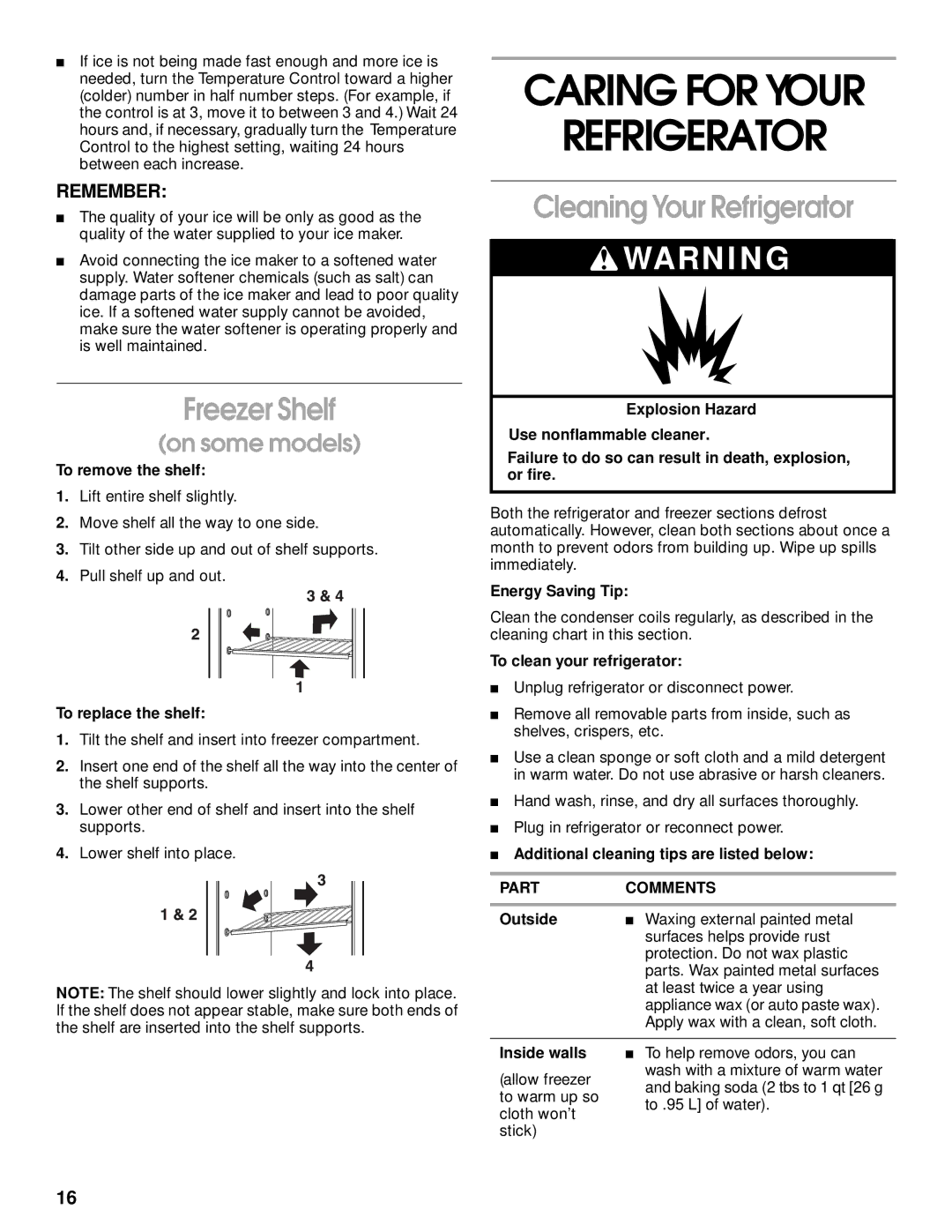
■If ice is not being made fast enough and more ice is needed, turn the Temperature Control toward a higher (colder) number in half number steps. (For example, if the control is at 3, move it to between 3 and 4.) Wait 24 hours and, if necessary, gradually turn the Temperature Control to the highest setting, waiting 24 hours between each increase.
REMEMBER:
■The quality of your ice will be only as good as the quality of the water supplied to your ice maker.
■Avoid connecting the ice maker to a softened water supply. Water softener chemicals (such as salt) can damage parts of the ice maker and lead to poor quality ice. If a softened water supply cannot be avoided, make sure the water softener is operating properly and is well maintained.
Freezer Shelf
(on some models)
To remove the shelf:
1.Lift entire shelf slightly.
2.Move shelf all the way to one side.
3.Tilt other side up and out of shelf supports.
4.Pull shelf up and out.
To replace the shelf:
1.Tilt the shelf and insert into freezer compartment.
2.Insert one end of the shelf all the way into the center of the shelf supports.
3.Lower other end of shelf and insert into the shelf supports.
4.Lower shelf into place.
NOTE: The shelf should lower slightly and lock into place. If the shelf does not appear stable, make sure both ends of the shelf are inserted into the shelf supports.
CARING FOR YOUR
REFRIGERATOR
Cleaning Your Refrigerator
WARNING
Explosion Hazard
Use nonflammable cleaner.
Failure to do so can result in death, explosion, or fire.
Both the refrigerator and freezer sections defrost automatically. However, clean both sections about once a month to prevent odors from building up. Wipe up spills immediately.
Energy Saving Tip:
Clean the condenser coils regularly, as described in the cleaning chart in this section.
To clean your refrigerator:
■Unplug refrigerator or disconnect power.
■Remove all removable parts from inside, such as shelves, crispers, etc.
■Use a clean sponge or soft cloth and a mild detergent in warm water. Do not use abrasive or harsh cleaners.
■Hand wash, rinse, and dry all surfaces thoroughly.
■Plug in refrigerator or reconnect power.
■Additional cleaning tips are listed below:
PART | COMMENTS | |
|
| |
Outside | ■ Waxing external painted metal | |
| surfaces helps provide rust | |
| protection. Do not wax plastic | |
| parts. Wax painted metal surfaces | |
| at least twice a year using | |
| appliance wax (or auto paste wax). | |
| Apply wax with a clean, soft cloth. | |
|
| |
Inside walls | ■ To help remove odors, you can | |
(allow freezer | wash with a mixture of warm water | |
and baking soda (2 tbs to 1 qt [26 g | ||
to warm up so | ||
to .95 L] of water). | ||
cloth won’t | ||
| ||
stick) |
|
16
